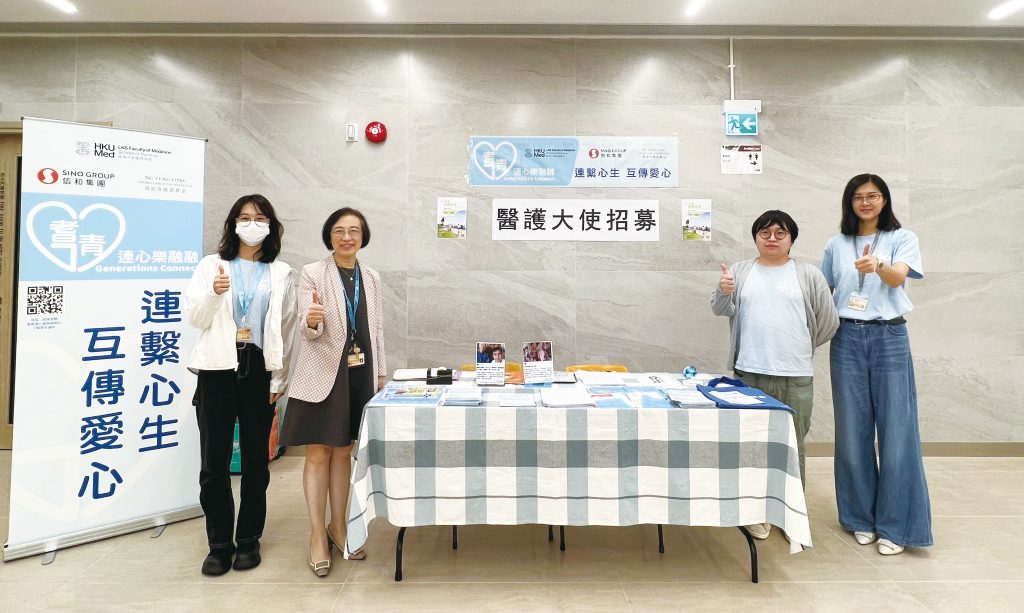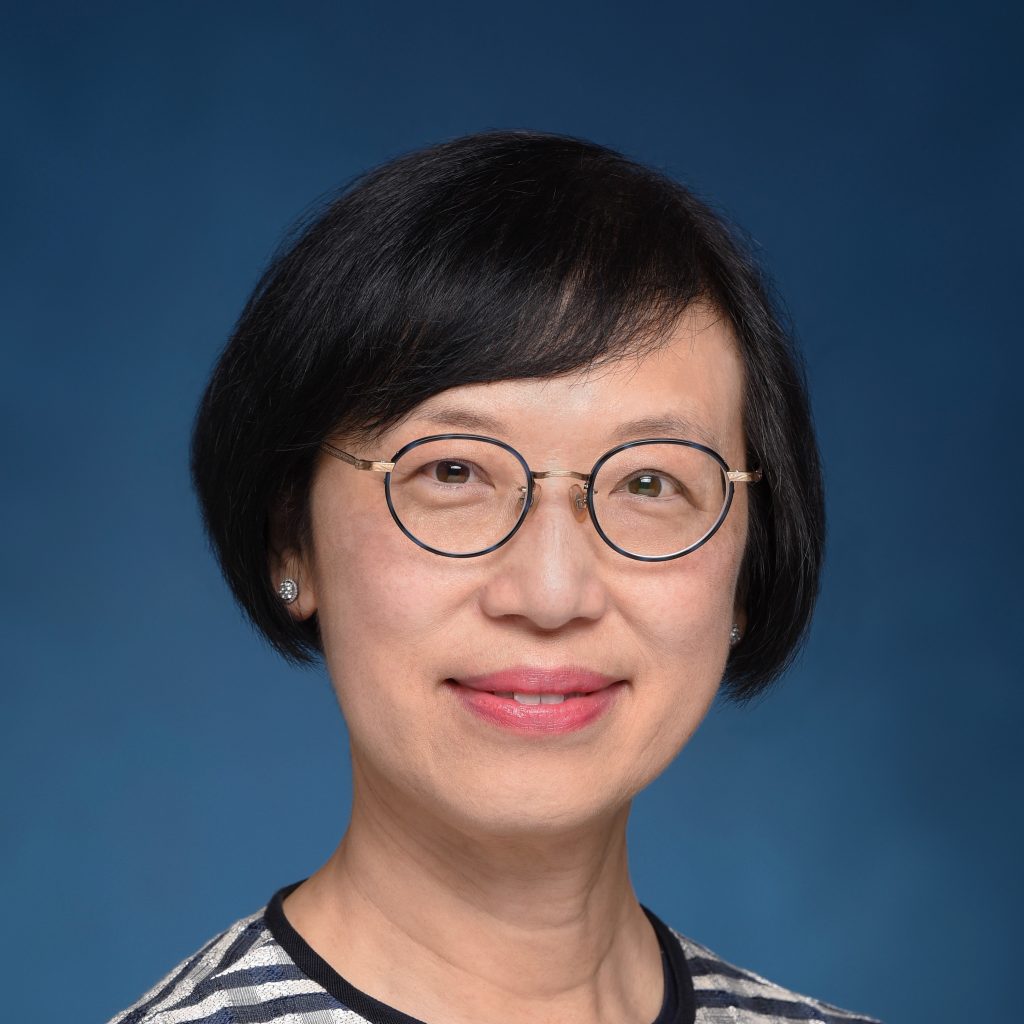November 2023 | Volume 25 No. 1
Generations Connect
Listen to this article:
Few people in Hong Kong have the breadth of understanding about COVID-19 and how to deal with it as Professor Sophia Chan Siu-chee. She was Secretary for Food and Health from 2017 to 2022 and was charged with planning Hong Kong’s response to the pandemic. When she returned to HKU last year (she was formerly head of the School of Nursing), she was quickly approached by donors who wanted to tap her expertise and find a way to help a group that had been badly affected by the pandemic: those elderly living in impoverished circumstances who were not very mobile and often were isolated.
Professor Chan was immediately interested but she wanted teaching and research to come into play, too. The result has been Generations Connect, a two-year project she is leading in which 1,000 students in the Medical Faculty will visit 10,000 underprivileged elderly in their homes. The students conduct health assessments and guide the elderly in improving their e-health literacy, such as demonstrating how to navigate the Hospital Authority’s HA-Go and eHealth app where they can book medical appointments and access their health records and health information.
“This is a win-win situation. On the one hand, it is an opportunity for our nursing and medical students to communicate and work with the elderly face-to-face. For the elderly, especially those living alone, they get an assessment and health information, and they love to have people visit them and talk to them,” Professor Chan said. Research also benefits from the data students collect in health questionnaires administered to the elderly.
Team efforts
The project was launched in January 2023 with HK$10 million in funding from the Sino Group and Ng Teng Fong Charitable Foundation and involves 18 charitable organisations and NGOs who are helping to identify elderly in need in 18 districts. Students are trained by both the Faculty and NGOs on how to communicate with the elderly. They also provide the elderly with information on four themes – e-health literacy, non-communicable diseases prevention, post-COVID prevention measures and psychological well-being – and encourage them to join the government’s new District Health Centres (DHCs) and receive health promotion services.
Initially, the project was meant to involve mainly nursing students – about 50 nurses joined a pilot study in November 2022 – but now students of any programme in the Faculty of Medicine can participate, including those taking a Common Core course even if their major is in another faculty.
Students go in pairs to conduct interviews and administer the questionnaire and theme-based interventions – for example, they might demonstrate how to do simple strengthening exercises and help the elderly use their smartphones. (All participants must have smartphones but many are not adept at using them; “that’s where the challenge is,” said Professor Chan.) The students contact their host two weeks later for a telephone follow-up.
Faculty researchers subsequently follow up after three months and six months to see how successful the interventions have been, for instance, whether unvaccinated elderly need to get their COVID-19 jabs or if participants are using e-health apps.
By the end of the summer, more than 100 students had visited over 3,000 elderly. Scheduling times that work for everyone can be a challenge, but the NGOs are helping with this. The latter have also recruited ‘young elderly’ from their centres to assist students with the visits as needed.
Promoting care in the community
Professor Chan’s team are also doing a qualitative study on the effects of the project on NGOs, students and the elderly. Although it is too early for results, a follow-up to the pilot study found low e-health literacy among elderly participants fell from 66 per cent to 56 per cent, and nearly 90 per cent of students said the experience improved their ability to communicate with the elderly and equipped them with more knowledge about elderly health and primary healthcare.
“Our population is ageing so we need to nurture our next generation of healthcare professionals to know how to promote health among the elderly,” Professor Chan said.
She hopes the project will also inspire students’ interest in primary healthcare, an area where Hong Kong has lagged in the past. While in government, Professor Chan set up a steering committee on primary healthcare development and established the territory-wide DHCs to provide primary care.
“Healthcare is not just surgery or hospital care. We also have more people in the community who have health needs and require help. The healthcare system was not constructed to address this, so we need to build up students’ understanding and skills. Visiting elderly in their homes is a very good learning and practical experience for our young students studying the healthcare professions,” she said.

Professor Chan (second from left) at the volunteer recruitment booth of Generations Connect.
Our population is ageing so we need to nurture our next generation of healthcare professionals to know how to promote health among the elderly.

PROFESSOR SOPHIA CHAN SIU-CHEE

